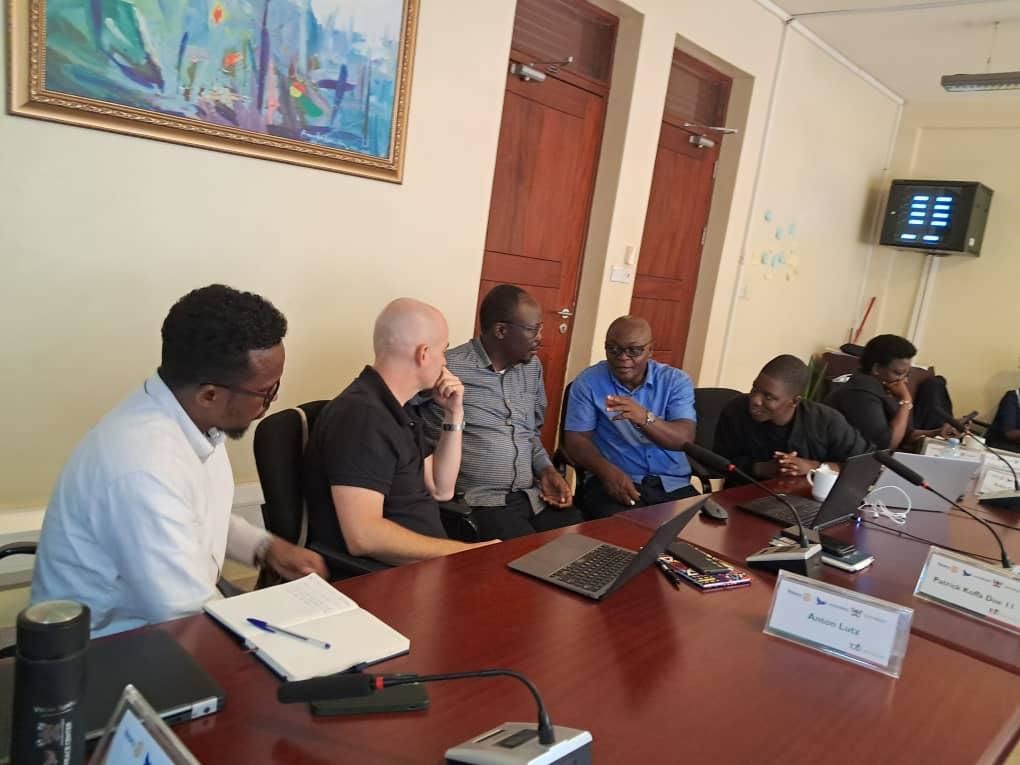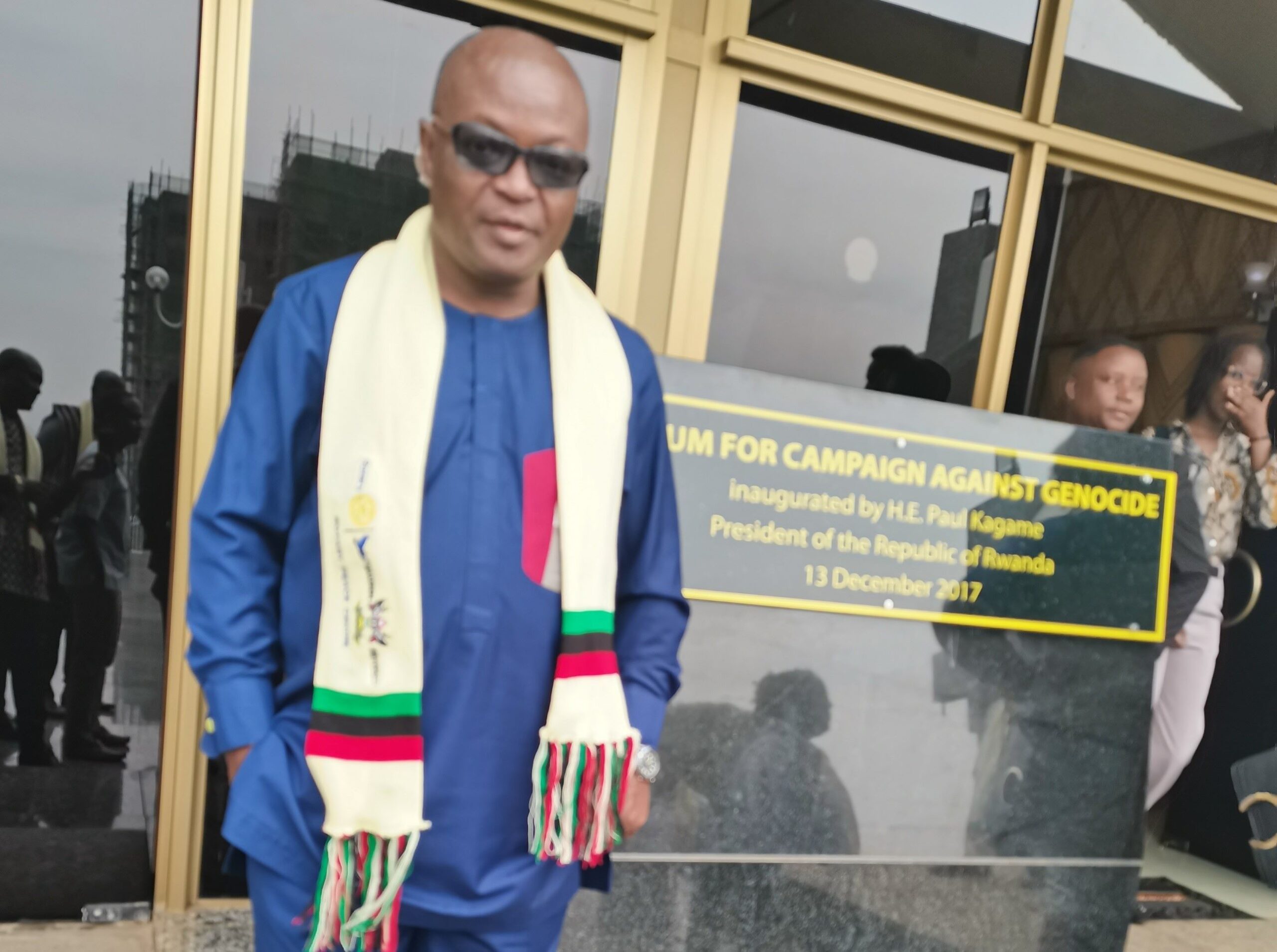PHOTO: Patrick Koffa Doe, the Author
An Article prepared by: PATRICK KOFFA DOE, II
Executive Director: Youth Movement for Peace Building and Democracy
(YOMOPAD, Inc.)
Writtten March 14, 2025
The lost generation of young Liberians who missed out on formal education due to the war is now an urgent issue. This demographic is one of the most vulnerable segments of the population, facing high unemployment rates and limited opportunities for personal development.
Introduction
Liberia, a country rich in culture, history, and resources, has experienced a long and painful period of civil conflict from 1990 to 2003. This devastating war not only left scars on the land but also disrupted the lives of countless Liberians, particularly the youth. In the wake of this crisis, a significant portion of the population—many of whom were school-aged during the war—dropped out of school, losing valuable years of education and skill development. This lost generation faces numerous challenges in today’s society, from unemployment and poverty to a lack of opportunities for personal and professional growth.

As Liberia continues its journey toward recovery, peace, and development, it is crucial that the government and relevant stakeholders recognize and address the needs of these young people. The empowerment of Liberia’s youth, especially those who were impacted by the civil war, must be a key priority in national development plans, such as the ARREST (Accelerated Recovery and Economic Stabilization) Agenda.
This document proposes a pathway for youth empowerment in Liberia, with a focus on reintegrating school dropouts and providing opportunities for Technical Vocational Education and Training (TVET) as a means of fostering economic independence and social inclusion.
The Impact of the Civil War on Liberia’s Youth
The civil war in Liberia, which lasted from 1990 to 2003, had a catastrophic impact on the country’s education system. Schools were destroyed, teachers were displaced or killed, and families were torn apart. As a result, millions of young people, many of them forced to become combatants or displaced persons, lost valuable years of schooling and vocational training.
After the war, despite efforts to rebuild, many of these youths found themselves trapped in a cycle of poverty and limited opportunity. Without proper education or skills training, the doors to formal employment and meaningful participation in society remained closed to them. The lack of opportunities also fueled a rise in social unrest and contributed to the economic difficulties that Liberia continues to face.
The lost generation of young Liberians who missed out on formal education due to the war is now an urgent issue. This demographic is one of the most vulnerable segments of the population, facing high unemployment rates and limited opportunities for personal development. Therefore, addressing the challenges faced by these young people is essential for Liberia’s continued peace, stability, and economic growth.
Youth Empowerment through the ARREST AGENDA
The ARREST Agenda is the current government’s strategic framework for Liberia’s post-conflict recovery and development. One of the core pillars of the ARREST Agenda is the empowerment of youth, particularly in creating sustainable employment opportunities and providing access to education and skills development. However, the specific needs of young people who were impacted by the civil war should be a central focus of this initiative.
A significant proportion of Liberia’s youth are unable to access formal education due to a variety of factors, such as financial constraints, inadequate infrastructure, and socio-cultural barriers. To ensure that these young people are not left behind, the government must take deliberate steps to include them in national recovery efforts. This includes expanding access to education, vocational training, and employment opportunities tailored to their specific needs.
Youth empowerment in the ARREST AGENDA should focus on:
- Reintegration and Education: Recognizing the educational gap caused by the war, the government must prioritize efforts to reintegrate school dropouts into the education system. This can be achieved through flexible education programs that cater to the needs of these young people, such as adult education and accelerated learning programs. Additionally, programs aimed at providing psychosocial support for youths affected by the trauma of war should be integrated into these educational efforts.
- Technical Vocational Education and Training (TVET): Given the limited access to formal education for many of Liberia’s youth, TVET programs offer an important alternative route to empowerment. TVET equips young people with practical skills that can immediately improve their employability. From construction and agriculture to information technology and entrepreneurship, TVET can offer a wide range of skills that are directly applicable in the Liberian job market.
Investing in TVET programs can provide young people with the tools they need to contribute to Liberia’s development in tangible ways. These programs should be accessible to all young people, including those from rural areas, and must focus on areas where there is a high demand for skilled labor.
Additionally, partnerships between the government, the private sector, and international organizations can help ensure that TVET programs are aligned with market needs and provide pathways for young people to secure jobs or start businesses. Creating strong linkages between training centers and industries will facilitate job placements and internships, allowing young graduates to gain practical experience and build networks within their respective fields.
- Entrepreneurship and Access to Capital: Youth entrepreneurship is another powerful tool for empowerment. Liberia’s youth possess untapped potential in terms of creativity, innovation, and energy, which can be channeled into the creation of small businesses and startups. However, many young people face significant barriers to entrepreneurship, including limited access to capital, lack of mentorship, and inadequate business skills.
The government should create policies and programs that support youth entrepreneurship, including providing access to microcredit, startup grants, and business development services. Additionally, partnerships with local and international organizations can help provide mentorship and capacity-building programs to equip young people with the necessary skills to manage successful businesses.
The Role of the Government and Stakeholders
The government of Liberia has a crucial role to play in ensuring the successful implementation of youth empowerment programs. Through the ARREST Agenda, it must prioritize the allocation of resources to youth development and create an enabling environment for young people to thrive. This includes improving the quality of education, expanding access to training opportunities, and promoting policies that foster youth employment and entrepreneurship.
Additionally, it is important for the government to work closely with civil society organizations, international partners, and the private sector to create comprehensive and sustainable solutions. Collaboration between all stakeholders will ensure that the programs implemented are impactful, relevant, and accessible to those who need them most.
Conclusion
The youth of Liberia are the country’s future, and empowering them is essential to the nation’s long-term stability and development. By prioritizing the reintegration of school dropouts, investing in Technical Vocational Education and Training (TVET), and promoting entrepreneurship, the government can help provide young Liberians with the tools they need to succeed in today’s world.
Incorporating these elements into the ARREST Agenda will ensure that Liberia’s youth are not only included in the recovery process but are also equipped to contribute meaningfully to the nation’s growth. The time for action is now. Liberia’s youth must be empowered to lead the way towards a brighter, more prosperous future.
By recognizing and addressing the needs of these young people, Liberia can build a stronger, more resilient society that benefits from the full potential of its most valuable asset—its youth.

